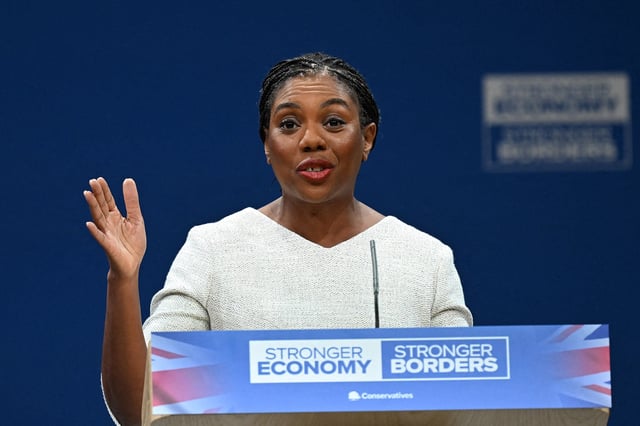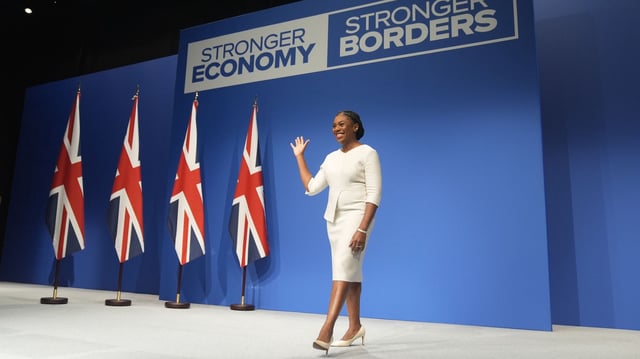Overview
- The Conservative leader unveiled the pledge in her conference closing speech in Manchester, framing stamp duty as a barrier to mobility and home ownership.
- Reporting differs on coverage: some accounts describe abolition for primary residences only, while others say all home purchases, with party language often referring to "your home."
- Badenoch cites £47bn in savings to pay for the policy, including reductions of £7bn in overseas aid, £8bn from the civil service and £23bn from welfare, under a new rule to split savings between deficit reduction and tax cuts.
- The Conservatives put the annual cost of abolition at about £9bn, while the Institute for Fiscal Studies estimates around £4.5bn if limited to main homes; stamp duty raised an estimated £13.9bn last year, much from additional properties.
- Supporters such as the Institute of Economic Affairs argue the move would boost market activity, while analysts question affordability and note no legislation or detailed implementation plan has been published.



